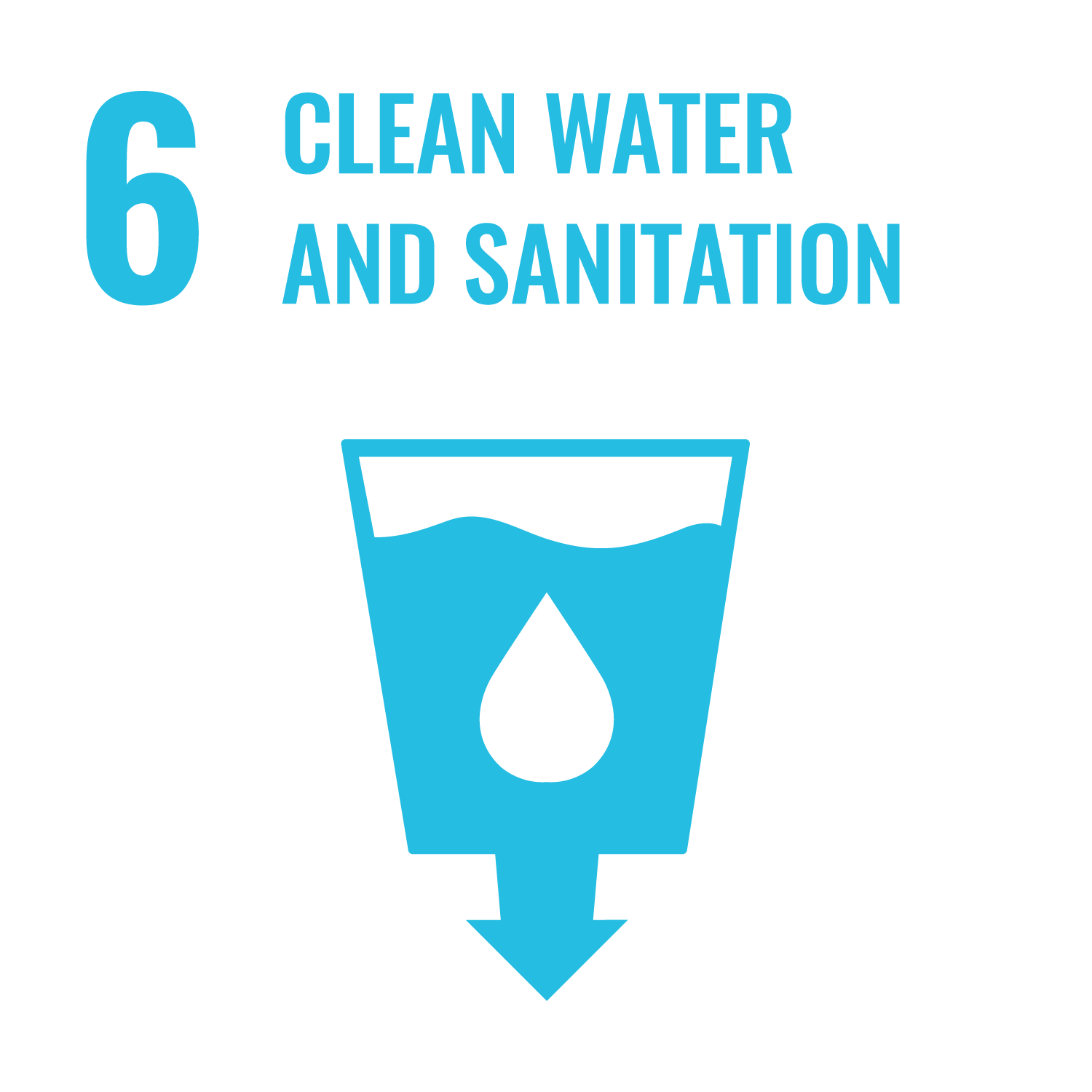 Goal 6. Clean Water and Sanitation
Goal 6. Clean Water and Sanitation
Reasearch Centers
AAST extracts water from wells as well as uses innovative solutions such as atmospheric water generators. Also, through research projects such as “Monitoring, Assessment And Innovative Treatment Technology To Enhance Groundwater Quality For Irrigation Toward Climate Change Adaptation”. AASTMT has its own Aquaculture Research Center which supports innovative solutions for waste- energy and water problems.
1- Aquaculture Research Center (2010- present)

The center aims to create models of new development projects in the field of aquaculture by studying scientific problems in aquaculture projects and developing appropriate solutions.
The center works with 3 integrated tasks (water- energy and food):
1- Production of Biodiesel from waste using cooking oil:
A mixer reactor of 1000 liter capacity was developed by Aquaculture Research Center for bio-diesel production using the transesterification process. Bio-diesel production started using the waste used cooking oil produced from kitchen wastes in the main campus in Abu Qir and from the surrounding restaurants and hotels from Alexandria city. The produced bio-diesel used in the production of electricity using a diesel generator. The produced energy was used in the general activities of the Aquaculture Research Center.
2- Food production using Hyonic system:
Hyonics is the cultivation of plants without using soil. Hyonic flowers, herbs, and vegetables are planted in inert growing media and supplied with nutrient-rich solutions, oxygen, and water. This system fosters rapid growth, stronger yields, and superior quality. When a plant is grown in soil, its roots are perpetually searching for the necessary nutrition to support the plant. If a plant’s root system is exposed directly to water and nutrition, the plant does not have to exert any energy in sustaining itself. The energy the roots would have expended acquiring food and water can be redirected into the plant’s maturation. Hyonic innovations have proven direct exposure to nutrient-filled water can be a more effective and versatile method of growth than traditional irrigation. The hyonic system is dramatically reduced the amount of fresh water needed by plants to 95% and increase the plant production by 3 folds than the traditional land cultivation system.
3- Rainwater harvesting for plant production in the Hyonic system:
Alexandria city is subjected to heavy rainy seasons extended from November to April. In the Aquaculture Research Center rain water is collected from the roofs of the green house and collected in 10 water tanks each one of 500 Liter capacity. The collected water is used in the hyonic system and fertilizer production units throughout the year.
4- Compositing of organic waste:
Organic wastes produced from the landscape areas in the main campus in Abu Qir and from the kitchen scrapes are of great importance. These wastes are converted into soluble organic fertilizers and used in the Earth worm production unit which mainly produce vermi-compost used as an organic fertilizer for the plant production in the hyonic system and worms production used in the experiments of animal feed production.






